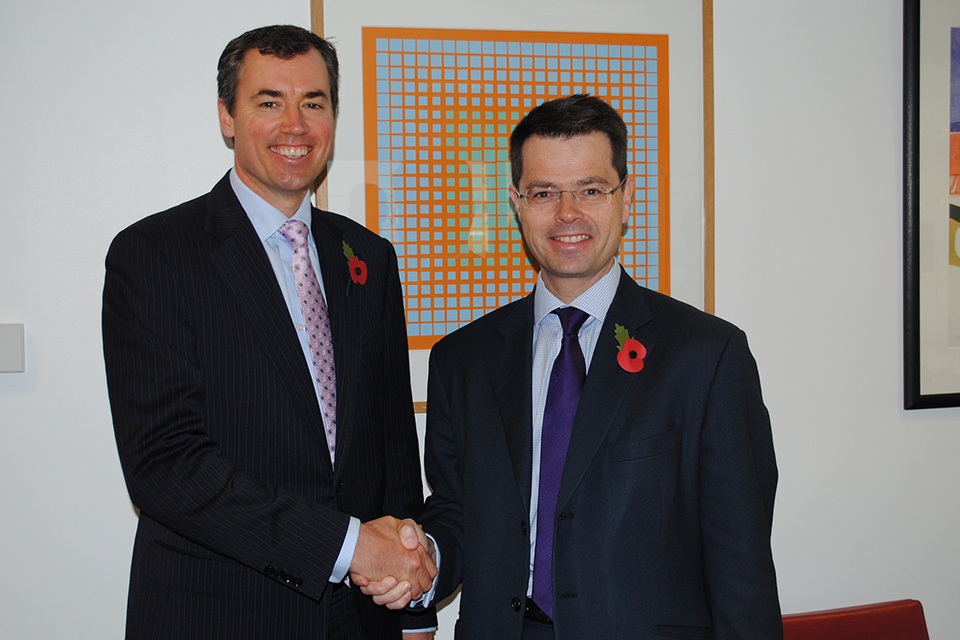UK and Australia unite to tackle serious crime
Ministers sign agreement to share crime scene DNA.

Rapists and murderers will find it harder to hide overseas after the UK and Australia agreed to share DNA profiles from serious crime scenes.
Immigration and Security Minister James Brokenshire met Australian Justice Minister Michael Keenan today to sign the agreement.
Australia has joined the International DNA Search Request Network (SRN), which makes it easier to check DNA from unsolved cases against profiles held in another country.
James Brokenshire said:
Signing this deal will allow information to be shared in a secure and proportionate manner that will strengthen our crime fighting capabilities and help solve serious cases like rapes and murders.
The agreement represents the type of international co-operation and data sharing that is critical in an increasingly interconnected world, where criminals seek to exploit any gaps that exist to find safe havens for their activities.
This is also why the UK also intends to remain part of a smaller number of measures in the national interest that improve police and judicial co-operation within the EU. Given the large Australian community in the UK, I know that Minister Keenan is also keen that we continue to ensure that our police and law enforcement agencies have access to these measures to help keep all of our citizens safe from harm.
Australia will join the UK, USA and Canada in the SRN. This will give UK police access to around 20 million profiles on three continents via a secure Interpol network.
Only good quality profiles from a single source related to serious, unsolved cases will be shared to help solve cold cases.
No more DNA profiles will be exchanged than under the previous system, but the process for doing so will be quicker and easier to help catch more serious offenders.

Michael Keenan said:
By working together, we will maximise our effectiveness and ensure we can work towards a global solution to the challenges of transnational crime.
Close cooperation to fight transnational crime both domestically and with our international allies, neighbours and friends is paramount for safety and security globally.
To ensure citizens are protected any member state has the right to refuse a search request if they do not feel it is appropriate.
But international exchange of DNA information can be a vital tool to help solve serious cold cases.
It led to the arrest of British citizen Colin Simpson Henderson, 63, after a new probe into a string of serious offences, including aggravated rape, attempted rape and a number of indecent assaults, in Australia in the early 1980s.
A DNA profile was sent to the UK and matched to Henderson. His fingerprints were then found to match those found at several of the crime scenes.
Immigration records showed Henderson lived in Australia at the time of the offences and he is now in custody pending an extradition hearing.
Parliament is set to vote next Monday on remaining part of a package of EU crime and policing measures that boost international cooperation to bring serious offenders to justice. The government is seeking to rejoin these in the national interest after opting out of a much larger number.